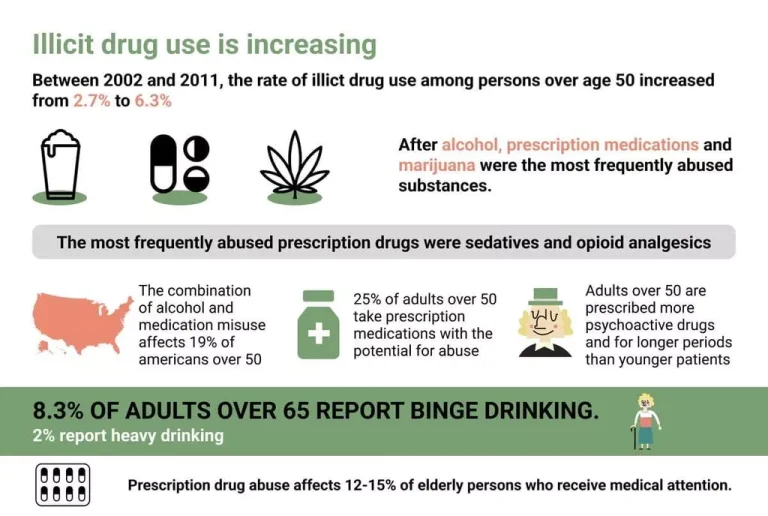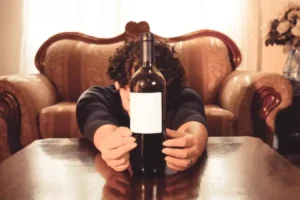
A 12-step support group can often help people recover from a codependent relationship. Other support groups are available for family members who need help navigating the challenges that occur from alcohol addiction. Those who prioritize the needs of their partner above their own often suffer from mental health issues like depression and low-self esteem.

Acute effects of alcohol on social and personal decision making

After the last glass, participants had a break for 15 min before proceeding with the decision-making tasks. Breath alcohol concentration (BrAC) was measured at baseline, 25 min later, just before the decision-making tasks and after additional appr. The Biphasic Alcohol Effect Scale [BAES; [41]] was performed every time BrAC was measured and the Drug Effect Questionnaire [DEQ; [42]] was measured the second and third time BrAC was measured. Baseline personality traits were obtained using the NEO Five Factor Inventory [NEO-FFI; [38]].

What to Know About Alcohol and Mental Health
Few studies have examined acute effects of alcohol on motivated behavior and decision making under a level of experimental control that allows causal inferences. For instance, many of the existing studies have used survey data to compare the behavior of people who abuse alcohol to those who do not. Although there are also placebo-controlled laboratory studies, most of these have used small samples and focused on a narrow selection of tasks related to personal decision making, primarily risk taking and impulsivity [10,11,12,13,14,15,16,17,18,19,20]. Some studies found increased risk taking due to alcohol [11, 13], while others found no effect [10, 12, 14, 15, 19, 20]. Similarly, waiting impulsivity has been found to increase [19] or decrease [16] following alcohol intake, but the majority of studies have found mixed or no effects [10, 11, 14, 15, 17]. Prototypical tasks for altruism and moral judgment have only been included in a minority of studies, with mixed results for both types of tasks [19,20,21,22].
How Alcohol Affects Relationships
But when you ingest too much alcohol for your liver to process in a timely manner, a buildup of toxic substances begins to take a toll on your liver. And that’s on top of the toll that alcohol use can take on relationships, not to mention the potential for financial strain and legal troubles. You probably already know that excessive drinking can affect you in more ways than one. A loss of work income lowers social security contributions and contributions to employer-provided or independent retirement accounts.
However, it’s important to remember that warning signs will not look the same in each relationship. Sometimes you will simply have to trust your intuition that something feels wrong. It’s never too early to reflect on your relationship with alcohol or seek outside guidance. It is no surprise, then, that comprehensive theoretical models of risk that attempt to explain effects of alcohol on relationships all of the possible mechanisms by which alcohol use contributes to marital success or failure are elusive. Measures of alcohol consumption refer to the quantity and frequency of alcohol consumed in a given period. Typical measures of alcohol consumption will assess how often an individual drinks (frequency) or how much an individual drinks in one sitting (quantity).
Relationship Problems That May Occur as a Result of Alcohol Misuse
This was assessed using two different tasks, designed to measure both altruistic behavior and preference for equality versus efficiency in distributions. When you increasingly choose to drink rather than doing previously enjoyed activities with your significant other or friends, you may need to examine your motives for these choices. Partners and friend groups should have activities they enjoy doing together. While shielding your partner from the truth may seem an innocent defense mechanism, it can eventually lead to consistent lies and more and more mistrust in the relationship.
- Payments were implemented via a standard cell phone transfer system in order to circumvent concerns about differential transactions costs in the waiting-impulsivity task [56].
- A friend or partner may constantly hear reasons for being late, disappearing or mood swings.
- Problem use is often assessed using diagnostic screening instruments such as the Michigan Alcoholism Screening Test (MAST; Selzer, 1971) or the Alcohol Dependency Scale (ADS; Skinner & Allen, 1982).
- First, establishing temporal precedence of alcohol use and abuse increases our confidence that there is a causal relation between alcohol and marital functioning.
- Although these results should be considered tentative until further research can contribute to the reliability of the results, they provide some limited empirical evidence to support Steinglass’ theory.
- As a result, the individual’s personal stability (if single) or family life can be radically shaken.
- Effective treatments are available, and your provider can advise on next steps.
- These different operational definitions probably contributed to unreliability and measurement error across studies.
For this reason, a brief overview of the four most common conceptual and operational definitions of alcohol use behaviors used in this literature will be provided below. It should be noted that the majority of these studies assessed the effects of husbands’ alcohol use and abuse on wives’ marital functioning outcomes. First, because it is historically not studied as often in this literature, the effects of alcohol use on one’s own marital functioning was not reviewed. Second, terminology used in this review was such that “alcoholics” in alcoholic marriages will refer to the husbands unless otherwise stated.
- For instance, many of the existing studies have used survey data to compare the behavior of people who abuse alcohol to those who do not.
- Or they might hide how much they were drinking, who they were hanging out with, or what they were doing in order to avoid a fight.
- People with depression frequently lose interest in activities that once brought them joy like hobbies and social events.
- However, a host of support organizations can also provide assistance in the form of group support, therapy, training, education, and more.
- Finally, we were not able to control for expectation effects by adding more conditions, while blinding was not successful.
Research indicates that 92% of victims of domestic violence reported that the assailant had used alcohol or other drugs on the day of the assault. Another study found that of those individuals who attack a partner, 60 to 70% had misused alcohol.8 The prevalence of alcohol in abuse situations does not necessarily mean that drinking causes the domestic violence, but it may be a factor in the violence. Initially, a person may think that using alcohol helps them deal with these stressors, but over time, frequent heavy drinking can turn into dependence on the substance.
Modeling social cognition in alcohol use disorder: lessons from schizophrenia

However, in social situations, where alcohol consumption is often encouraged, it can be challenging to limit your intake. One effective strategy is to create the illusion of holding a drink by opting for nonalcoholic beverages served in traditional cocktail glasses, complete with a straw and a lime wedge. This approach can help you avoid the peer pressure to drink, allowing you to say no to alcohol without feeling the need to justify your decision. If for whatever reason your partner doesn’t feel ready, or willing, to review their drinking, there’s nothing to stop you taking the lead yourself. But you’re likely to be more successful if you make a plan together to reduce your drinking.